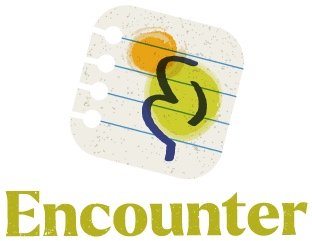Encounter: an early prototype
Dear supporter,
Spring at last! What a horrible, wet winter it’s been here in East Anglia, and in other parts of the country, too. But it wasn’t cold, and that’s meant lots of spring phenomena have arrived early – and while it’s cheering to see an orange-tip butterfly in early March, it’s a bit of a worry, too. Still, we’re now getting firmly into the territory of bluebells and cow parsley, our local nightingales have arrived and are singing strongly, and I’m hoping for a cuckoo any day now. The next six weeks or so are by far my favourite time of year.
Since we were last in touch we’ve been beetling away making a rough prototype of the Encounter app and sending it out to our brilliant volunteer testers. We’ve got a fascinating set of results in from them, and now we’d like to open it up to you, our supporters. If you’d like to get involved, simply watch our tester video below, then click here to fill in a short survey, which will remain open until 6pm on April 26th. Thank you!
Another nice bit of news comes from Miles Richardson, our resident Professor of Nature Connectedness. He’s just finished writing his second book, Nature’s Gift: A year-round guide to reconnecting with the natural world. It’ll make all the latest research accessible to everyone, and will be out in autumn this year.
Spring is the perfect time to get outdoors and start noticing nature, as new things are happening every day. Look and listen out for joyfully screaming swifts overhead, most of which will arrive from sub-Saharan Africa around the end of April/start of May and will leave again in just eight weeks; take a moment to glory in clouds of greater stitchwort on roadsides and verges, newly leafed oaks with their soft, copper-coloured foliage, and holly blue butterflies dancing about on sunny days.
Two free nature identification apps that will help you learn more about what you see and hear are the birdsong recognition app Merlin (make sure you download the appropriate data pack) and Flora Incognita, which is miles better at recognising plants than anything that comes built in your phone, and also stores a list of what you’ve seen, which is useful when you inevitably forget what it was (or at least, I do).
The less mowing, strimming, weeding and other ‘tidying-up’ you can do in your garden this spring, the better – so consider that your excuse! Birds are nesting and need to be left undisturbed, wildflowers, if allowed to bloom, feed bees and other precious pollinators, and every square foot of lush, tangly vegetation means more aphids and caterpillars, which are vital baby food for chicks. To do your bit for nature, let it go, let it grow, and enjoy the wonderful, wild results!
Wishing you all the joys of spring –
Mel
